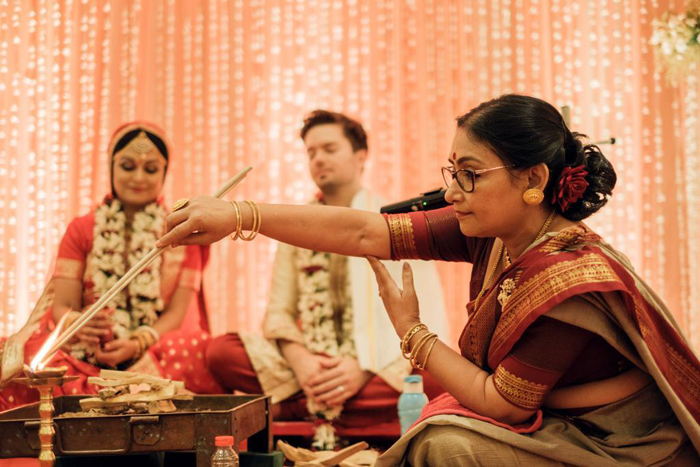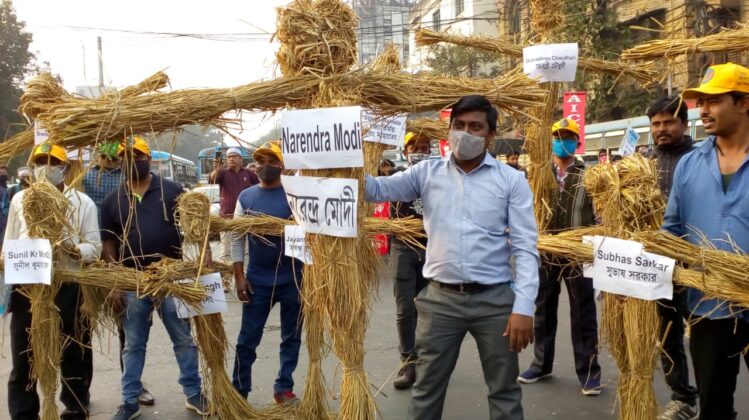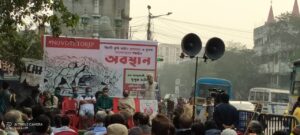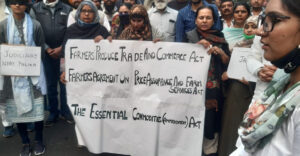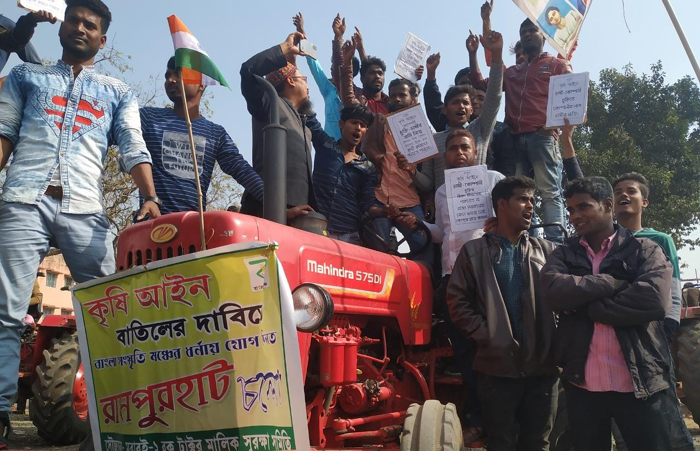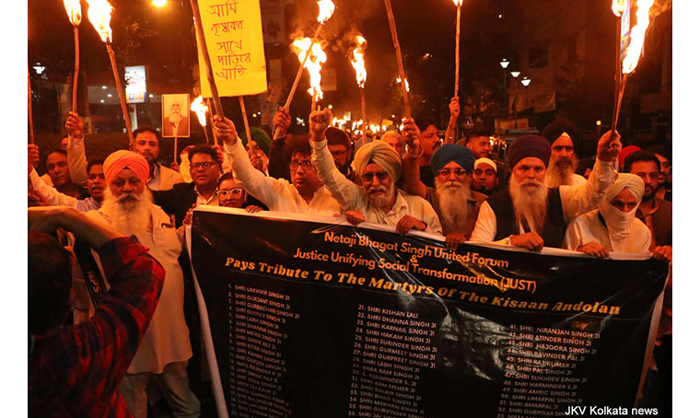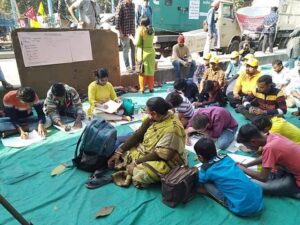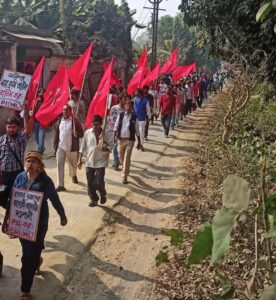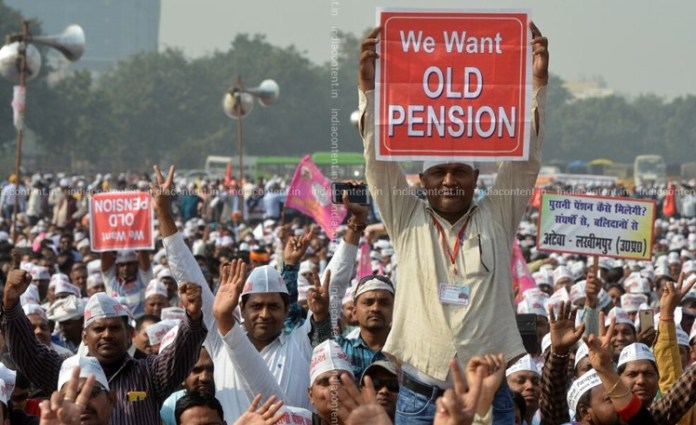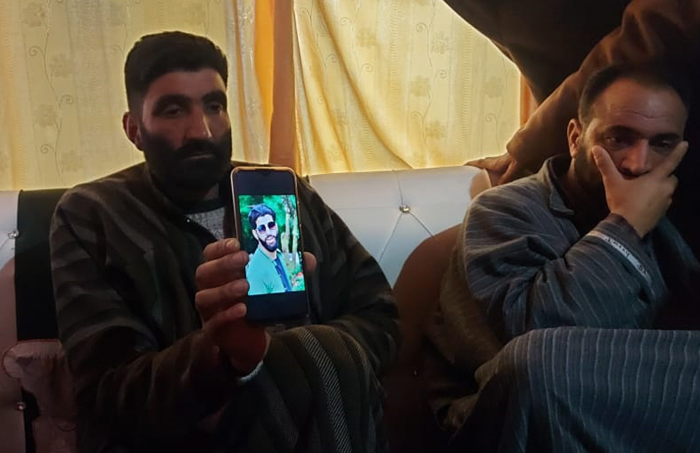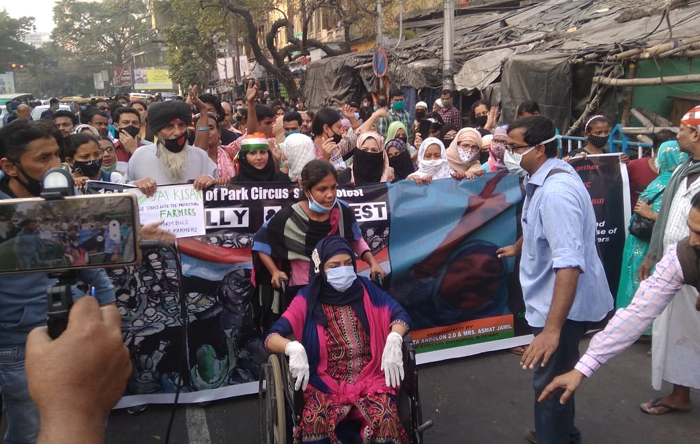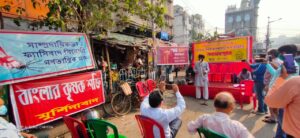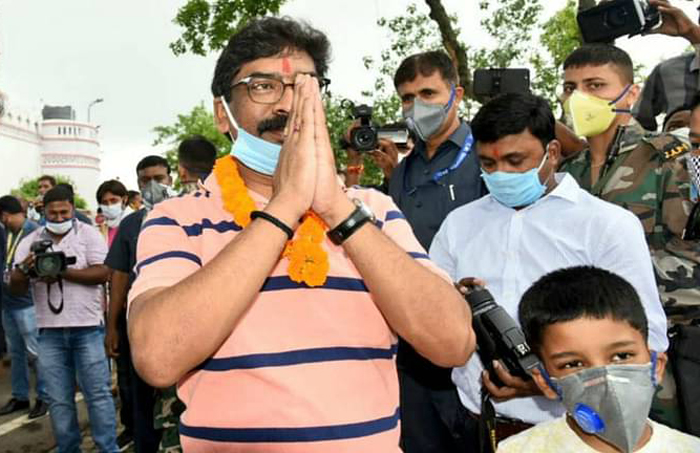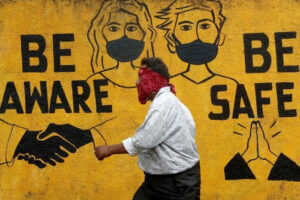Kolkata: Dr. Nandini Bhowmick led a quiet and quite a revolution when she took stage as a woman priestess. Her work went on to inspire the Bengali film, Brahma Jaanen Gopon Kommoti in 2020 which has now been selected for the Indian Panorama section of the 51st International Film Festival of India to be held in Goa from January 16-24, 2021. In this exclusive interview to eNewsroom, Nandini, who also teaches Sanskrit at Jadavpur University in addition to being a theatre professional, shares her joy, talks about the journey that she and the all-women priestess group Shubhamastu that she leads have traversed thus far, and also gives out a special message for our women readers.
eNewsroom: Brahma Jaanen Gopon Kommoti (BJGK), the film inspired by your work will be screened on January 17, 2021 at the 51st International Film Festival of India. Heartiest congratulations to you and your all-women priestess group – Shubhamastu.
Nandini: Thank you. The news was given to me by Aritra Mukherjee, the director of the film and it brought tears to my eyes. BJGK is a path-breaking film advocating social change. All of us at Shubhamastu are super-excited.
eNewsroom: Well, what you did was path-breaking, too…
Nandini: Thank you. I wanted to break the manacles of deep-rooted patriarchal prejudices. A woman is regarded as ‘impure’ because she menstruates. This is precisely why only Brahmin men are allowed to perform religious ceremonies. This inference is unacceptable. Why should one hear about the Sabarimala Temple case in today’s times?
eNewsroom: Who inspired you?
Nandini: Ruma Roy and I were inspired by Acharya Gauri Dharmapal, our Sanskrit professor at the Lady Brabourne College. She was a practicing priestess and one day she asked us whether we could like to don the mantle. Both of us readily agreed. We started our journey in 2009. Seymanti Banerjee and Paulomi Chakraborty joined us after a while.

eNewsroom: What was your family’s reaction?
Nandini: I come from a very progressive family. My paternal grandmother Jyotiprabha Devi had refused to change her surname after her marriage and added ‘Devi’ to her name instead. My family was hardly surprised when I informed them. I have even solemnised the weddings of my two daughters without any ado.
eNewsroom: Did you have a specific plan in mind?
Nandini: Since I hail from the theatre background, I had realised that we must have that extra element of performance. We had to be different. Thus, at a Shubhamastu officiated ceremony, you will not only hear mantras and shlokas being delivered by Ruma and me, you will also hear the timeless compositions of Rabindranath Tagore rendered by Seymanti and Paulomi. We follow scripts and we also have our Rabindrasangeet playlist, both of which are upgraded constantly.

eNewsroom: Your initial days were filled with struggles. How did the tide turn?
Nandini: When Ruma and I started, we battled doubts and mockery, sexist and misogynistic snarls. Our claim and relevance were questioned. The tide turned when brides and grooms with progressive-minds started contacting us. They did not want to follow the patriarchal rituals. They wanted to get married the ‘Shubhamastu way’. Today, besides weddings, we also officiate housewarming ceremonies, memorial service and so on.
eNewsroom: Can you tell our readers about the ‘Shubhamastu way’?
NB: Well, Shubhamastu has placed the Rig Vedic wedding ceremony and its rituals in a contemporary and current context. Our ceremony is short and crisp. We translate the Sanskrit shlokas and mantras in Bengali or Hindi and English so that everyone can understand the meanings. In a wedding the mother’s name is taken after the father’s, when we conduct it, we take her name first.
We have also eliminated certain archaic patriarchal practices. For example, we do not follow the kanyadaan ritual where the girl (as if she is a commodity) is given away as a donation to the groom by the bride’s father.
We also do not follow the ‘lojja-bostro’ (cloth or cloak of shame) ritual where the bride’s face is covered by a sari as the groom puts the vermillion on her. As a matter of fact, we ask the bride to put a shoubhagya tilak or a dot of vermillion on the forehead of the groom as a mark of good luck.

We do not encourage the piri-ghorano, a ritual where the girl has to sit on a low, flat stool and the male members of her family carry her seven times around the groom nor do we advocate following the ritual of chaal chorano where the girl throws rice grains to signify that she is returning or paying off her food debt at her father’s house.
eNewsroom: Would you say that the clients who approach Shubhamastu are beacons of social change or is it a ‘status symbol’ for many?
Nandini: Well, 80 per cent of our clients are advocators for social change. Initially, we only got calls from urban metros and cities, but of late we have been to various sub-urban, semi-urban towns and metropolitan cities like Kancharapara, Uluberia, Srirampur, Sonarpur, Madhyamgram, Asansol among others. This indicates changing mindsets in these places. However, 20 per cent of our clientele do comprise families for whom ‘being married’ by Subhamastu is nothing more than a ‘status symbol’.
eNewsroom: Any special message for our readers?
Nandini: Despite living in the 21st century, women are considered to be unequal to men; they are described as helpless; regarded as impure and even inauspicious. This patriarchal mindset needs to change. I belief that women have the power to usher in change. However, in order to do that, they have to first free themselves from the shackles of age-old beliefs, prejudices and superstitions. Women need to be fearless, determined, find their voices, advocate for gender equality and should not give up till they have made a difference.


